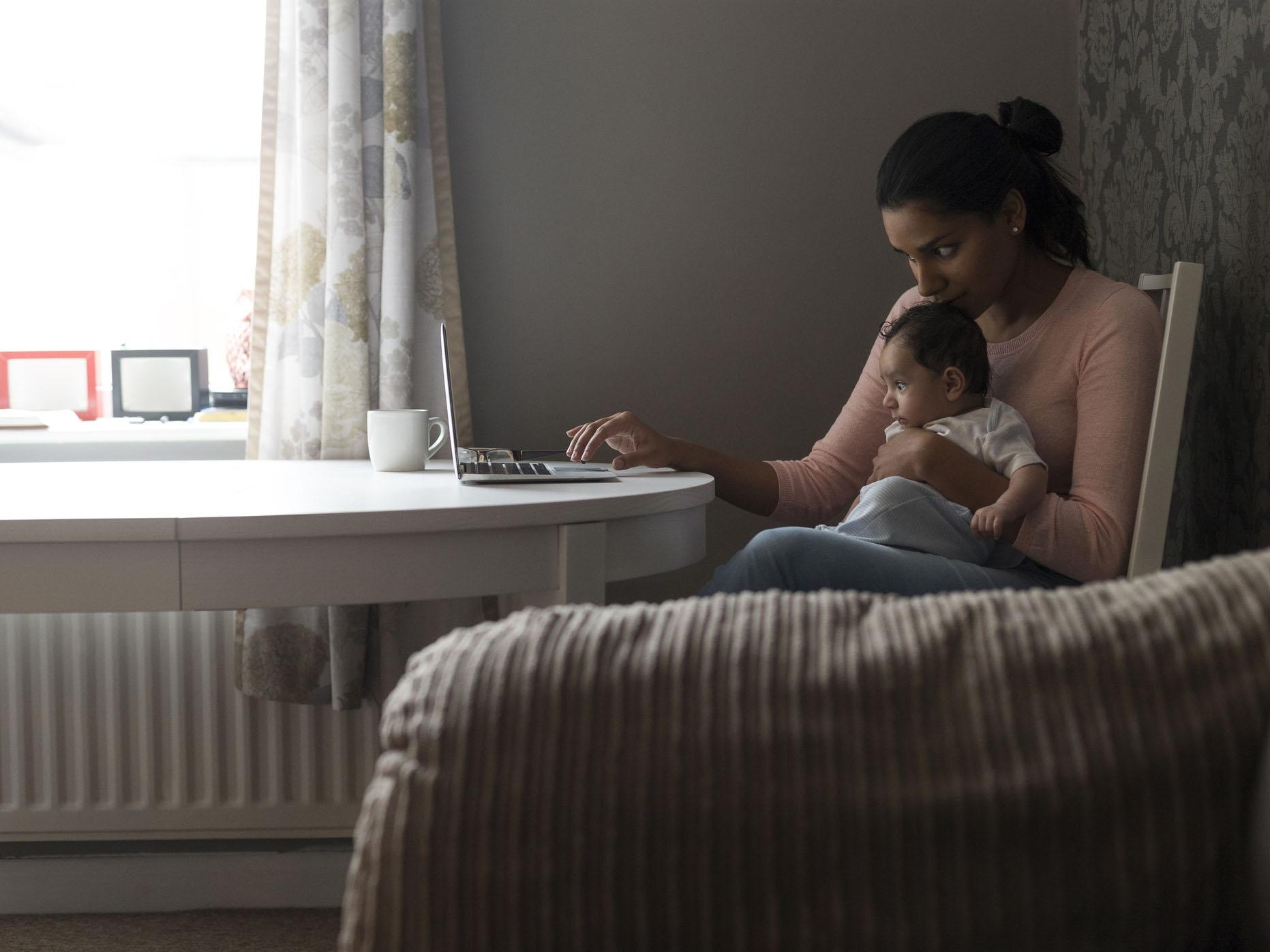The mother of all resignations?
As Britain approaches the 20th month of the Covid-19 pandemic, Joanna Hunt examines the impact it has had on mothers – and the importance of employers recognising their changed needs

In the last 20 years we have all experienced a shift to the 24/7 economy. It is relentless.
Previously, as a working mother, one would typically have dropped off the kids at school, travelled to work for 9am and left somewhere between 3-5pm, depending on the career.
Most importantly, when she left the office, the mother would have “closed the door” on her working life until she returned to work the next morning, leaving her the space to be a mother.
Being a mother and being an employee or employer were separate.
Now we live in an economy where a working mother can be reading emails as her baby rests on her breasts at 2am, whilst gearing up for her four-year-old to wake at 5am, before leading the team meeting on zoom at 8am.
The working mother is often literally working whilst being a mother. For many, relentless isn’t close to it. Too often it is about breaking point.
The pandemic only exacerbated the problem. On the one hand there are huge, loving, hugging, kissing, dopamine-fuelled advantages for working mothers of being at home more. But on the other many of the last remaining boundaries between work and home have been, and continue to be, crossed.
Employer-employee policies that have been created by bosses, who across the economy predominantly remain male, have not responded.
Working mothers are looking at these policies wondering who is going to encourage the advantages of the flexi world, whilst protecting them from boundary-less communication and constant expectation.
Policy making has to evolve, and quickly, if employers want to keep their mothers as employees. What we otherwise risk facing is being on the fast track to the mother of all resignations!
In March 2020, many mothers went into survival mode. Many are still in recovery and only now slowly emerging, their heads finally slightly above the water, and thinking how to make longer-term, sustainable (mentally and emotionally) decisions about their futures.
We have all heard the buzz words surrounding job satisfaction: purpose, sustainability, alignment, impact etc.But cut through these and what it all comes down to is simply feelings of happiness.
Currently, many employers have a generic approach to their employees’ mental and emotional wellness, if they have an approach at all. But the challenges faced are simply not the same for a 22-year-old graduate when compared to a 45-year-old Managing Director with three children under the age of seven.
That is why what is needed now from employers is a more targeted, specific approach for each demographic. And it is one that must recognise the needs of working mothers and provide them the support required
Whilst it may not be what masculine-dominated board rooms want to hear, it is often only when you are allowed – or allow yourself – to slow down that you feel what is going on within you.
Through my work as a coach to working mothers I have learnt that this is why so many women actually keep themselves so busy.
Sitting with our true feelings can be uncomfortable. It’s often much easier to numb the worry, sadness, anger, and disconnection that so many have inside them with constant busy-ness.
Yet ignoring feelings ultimately does nothing for boardrooms’ and shareholders’ results. It only fuels the risk of burnout, and then the inevitable resignation, not forgetting the reduced productivity along the way.
It is why I believe HR heads would have a far easier time learning about and dealing with the difficulties working mothers face rather than having their time filled with the inevitable turnover of staff that not doing so results in.
McKinsey & Company recently issued a report titled ‘Great Attrition or Great Attraction? The choice is yours’.
It summed up this challenge perfectly: “By not understanding what their employees are running from, and what they might gravitate to, company leaders are putting their very businesses at risk.”
That is the lesson that employers now need to learn not only for working mothers’ sake but for their own.
Joanna Hunt was born in Newburyport, Massachusetts and now lives in the United Kingdom. She is the author of ‘Find Your Mama Groove’ Joannahunt.com
Join our commenting forum
Join thought-provoking conversations, follow other Independent readers and see their replies
Comments
Bookmark popover
Removed from bookmarks